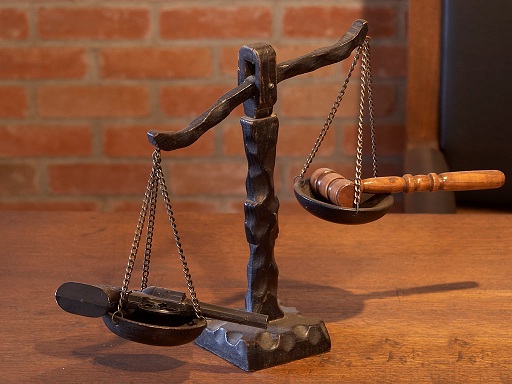
A few years ago I found myself walking through an L.A. neighborhood that I didn't know very well. This was not one of the nicer parts of town; industrial complexes cast block-long shadows over signs for massage parlors and doughnut shops. The tense-looking man in the baggy red hoodie seemed to appear from nowhere.
"I want to ask you a question," he said, matching my walking pace. "If someone came up to you and said, 'I have a gun, and I want your wallet,' would you hand it over, or would you make the wrong choice and die?"
Trying to keep my voice calm, I asked what prompted his question.
"I'm not asking a question," he said, flashing the grip of something dark and metallic. "I got a gun right here... and I'm telling you now: Give me your wallet and your iPod."
I didn't see much point in betting my life on a few bucks and an old iPod, so, with a resigned sigh, I handed over the loot -- though I somehow managed to talk my mugger into letting me keep my bus pass. And as soon as he'd disappeared, I reported my stolen property to the police, not really expecting to hear anything back, ever.
But the very next afternoon, I got a call from the detective assigned to this case -- which, it turned out, was just one of a string of robberies committed by the same guy on the same block in the last two weeks. If I could identify my mugger in the security-camera footage of a nearby convenience store, the detective said, I'd get the chance to testify against him in court -- and maybe get some compensation for my loss.
Identifying him was easy; with just a glance at the camera footage, I was 100-percent certain this was the guy -- he hadn't even bothered to change clothes since he'd robbed me! At the actual trial, though, convicting him turned out to be a slippery process: The defendant had gotten a haircut, and now he wore an orange jumpsuit. Even his body posture seemed more slouched, less confident than that of the man who'd threatened me.
I hesitated on the witness stand -- just for the briefest moment -- before saying I was sure this was the man I'd seen. And in that micro-moment of hesitation, I caught a hint of a smile from the defense attorney.
Then came the clincher. "Are you sure you saw a gun in this man's hand?" the defense lawyer asked me.
I took a moment to compose my reply: "I saw something that looked so much like a gun that I feared for my life."
"No further questions," he told the judge, still trying to hide his grin.

Maybe the other victims and eyewitnesses hesitated, too. Maybe there were weak points -- uncertain memories -- in each of their stories. Maybe the defendant's lawyers coached him to change his haircut and posture, with that very intention in mind.
The point is, I remembered the thief's face vividly for a day or so (the night after I got mugged, I couldn't sleep, because I saw him sneering at me every time I closed my eyes), but as the days passed, I found that I remembered fewer images and more facts: the colors of the thief's hoodie and pants, the words he'd said, even the exact time displayed on my iPod (12:36) at the moment I'd handed it over to him. But try as I might, I couldn't picture the guy's face. In other words, semantic memories were out-competing episodic ones.
And worst of all, I knew all this was going to happen. I'd read and written about dozens of psychological studies that showed that stress and physical exertion can distort memories and impair recall, and that social pressures can produce completely fabricated memories. In fact, new research shows that eyewitnesses pick suspects out of a lineup most accurately when they're told to "trust their gut" and make a snap decision. My memories of the mugging, on the other hand, had weeks to stew and morph.
A man had robbed me; I knew that much for certain -- but how could I be sure the man I faced on the witness stand was the same one? I was 99.9-percent certain, but I wished I could be absolutely certain, without a shadow of a doubt. Is such a thing even possible when it comes to human memory? And if it isn't, can I be sure justice was served?
I'd love to say I know some neuroscientific trick, some mind-hack that confirms beyond a doubt that what you're remembering is faithful to the facts. But, in all honesty, the best strategy I've discovered is simply to keep an open mind about your memories -- to remember that, as Jonathan Swift said, "A man should never be ashamed to own that he has been in the wrong, which is but saying ... that he is wiser today than yesterday."
What about you? What's your most vivid memory? What details make it feel real to you? If you were on the witness stand and the judge asked you how certain you were about one of those details, what would you tell him?